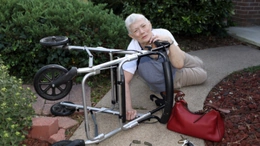A Guide To Assisted Living Options With Guardian Healthcare

Entering the world of assisted living for a parent, a grandparent, or even yourself can be like entering a maze.
With more Americans living longer, the same question that has been asked by one family or another in the past is also beginning to take shape in the minds of an increasing number of people: how can we keep our elderly safe without taking away their independence.
Assisted living closes the gap with the advances of private apartments, supportive assistance, and an ingrained community all in one. This guide discusses how different assisted living options offer enhanced guardian healthcare to tend to your aging parents.
Understanding Assisted Living
Assisted living is designed to provide care to senior individuals who require assistance with daily tasks, but not comprehensive around-the-clock health services.
One can imagine it as a middle ground between staying in an independent living facility and being in a nursing home.
People experiencing these services tend to be helped with bed bathing, dressing, and medication, and yet remain independent in their own or semi-independent apartment.
Assisted living is so beautiful since it does not fit all. It may just be that some of these people require some support in the mornings. Others might need post-surgery memory care or short-term rehabilitation.
Over 800,000 Americans live in assisted living facilities within the U.S., and this population has been increasing as families seek comfortable homes, which combine elements of a community with carefully duplicated care.
Types Of Assisted Living Options For Seniors
A range of living options caters to different health situations, preferences, and lifestyles for seniors. Here are the various types of assisted living options:
1. Standard Assisted Living Communities
This is the classic model of assisted living communities. The senior population resides in apartments of their own with the provision of 24/7 assistance in case of need.
Assisted living communities like to check in to see how you are doing, help you get dressed in the morning, administer emergency medication, or simply be that friendly face all the time. Their staff is trained to help with seniors’ daily needs in such a way that does not seem intrusive.
2. Memory Care Units
Seniors who are living with Alzheimer's or any other type of dementia have specially developed memory care neighborhoods.
Such safe places are occupied by professionals who are trained in cognitive health. It is centred on organised schedules, sensory involvement, and security, and keeping the independence that they have to the maximum possible.
3. Respite And Short-Term Stays
Not every time should the move be full-time. Perhaps a parent or grandparent is out on vacation, or an elderly person has just undergone an operation and needs some slight help.
In such cases, the respite care program of healthcare facilities offers temporary stay with full availability of amenities, meals, and medical care. It is also a nice means of trying before you buy.
4. Continuing Care Retirement Communities (CCRCs)
This model is characterised by a complete continuum of care, ranging from independent living to skilled nursing, all under one roof.
Seniors can transfer between the levels of care without altering communities. The CCRC is best suited to long-term planners who seek consistency and stability, and this applies to elderly couples with varied care needs.
Services & Amenities That Matter
Nobody imagines spending the golden years of his/her life in an environment that seems so clinical and impersonal. Seniors nowadays are in demand of more than basic care; they want to be connected, comforted, and feel purposeful.
Many assisted living communities are meant to assist in the daily activities of aged adults, including bathing, dressing, and taking medication.
Most of them also provide supplementary services, including chef-prepared meals, laundry, and housekeeping, in order to minimize the amount of stress in seniors and let them have a healthier cycle of everyday life. There are also wellness and social perks:
- Group fitness classes like chair yoga or tai chi
- Game nights, art therapy, and gardening clubs
- Spiritual services and chaplain visits
- Salon and barber services
- Scheduled transportation for appointments or errands
Plus, many senior guardian communities are pet-friendly, because who wants to leave their fur-baby behind. These services don’t just check boxes; they’re designed to promote dignity, social connection, and joy.
Studies show that social engagement in assisted living communities significantly reduces depression and cognitive decline. That’s not just nice, it’s necessary.
What To Consider When Choosing Assisted Living?
It is a major decision to make when selecting an assisted living facility, and there is no disgrace in spending time. These are some of the things that you will have to consider before putting your signature on the line:
1. Location
Does it have proximity to relatives or friends? In case it is easy to access, it can allow more frequent, reassuring visits. The favorable place is also beneficial when emergencies or urgent meetings happen.
2. Staff-To-Resident Ratio
The higher the number of caregivers per resident is, the better the attention, response time, and care are provided.
Thus, it would be a good question to inquire how employees are trained and how much time they have served in the facility.
3. Licenses And Accreditation
Ensure that the facility is within the requirements of your state and is regulated. Most inspection records are available on the websites of health departments of the states. The higher the quality and the safety requirements, the more likely the accredited facilities are.
4. Care Customization
Is the facility able to customize assistance to your (or your loved one's) specific needs? Frequent reviews assist in making care plans, which can be updated over time. This capability of adapting the services guarantees that the support will be sufficient according to the changes in the health requirements.
5. Transparency
What does the base cost require? What are the charges for the à la carte services? Just keep requesting a breakdown of costs and charging policies. Transparency in prices enables the families to plan appropriately and prevent hidden expenses in the future.
Conclusion
Choosing an assisted living facility with guardian healthcare is a personal decision, and just like all decisions based on practical needs, it must also take into consideration emotional comfort. Ranging from options between normal support and memory care, it is highly dependent on the individual's health, preferences, and budget.






















